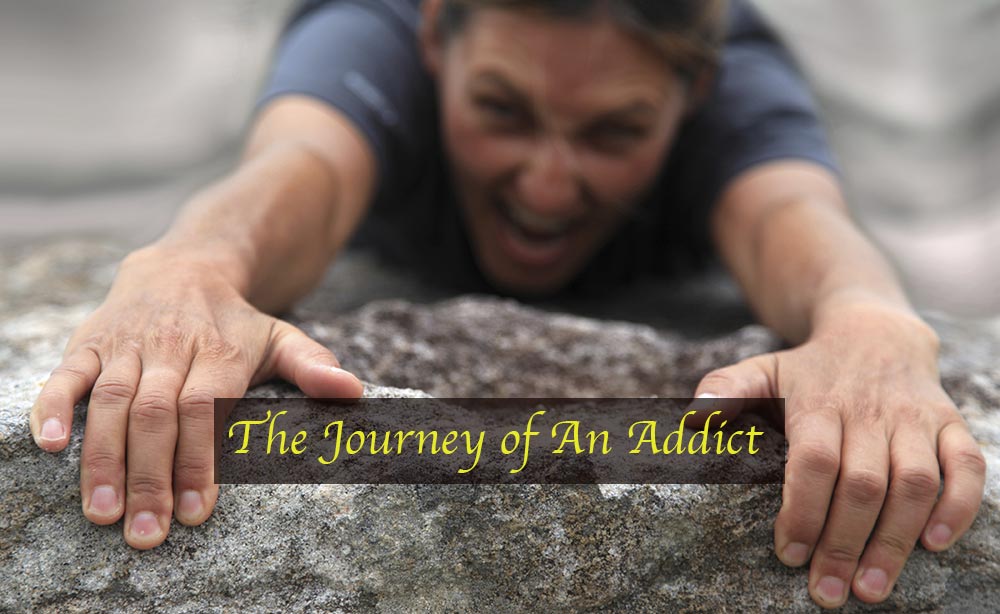Read the latest and greatest from our team
of incredible specialists.

Beach House Recovery Center » Blog » White-Knuckling Sobriety
Willpower is trying very hard not to do something that you want to do very much.”
-John Ortberg
Somehow I managed to accumulate ten months of sobriety and I felt much better physically. What I didn’t realize is that I was living as what is called a “dry drunk”. I’d heard the term “white-knuckling it”, but didn’t know just what that meant. In a nutshell, it means sobriety is all about the quality of your time, not the quantity. As yet, I had no idea what emotional sobriety was.

I read “The Big Book” as my sponsor suggested. However, I never went through the 12-steps of AA with her. That means I didn’t learn how to change my skewed thinking. It was sheer will-power (or won’t power) that kept me hanging on. This is the white-knuckling part. The thing is, you can only hang on for so long. Eventually, life happens. Things go wrong. Sometimes we hurt.
When people have a willpower failure, it’s because they haven’t anticipated a situation that is going to come along.”
-Charles Duhigg
One day, my little Yorkie was stolen from my home. I frantically called the police. I was hysterical and inconsolable. As the police were asking me questions, I couldn’t wait for them to leave so I could go to the liquor store and get a bottle of vodka. There was no force on this planet that could have stopped me from drinking.
After my second drink, I began to shake uncontrollably. Clearly, my body could not process alcohol anymore and I proceeded to experience my first black-out. This was the beginning of my two-week relapse. I stayed in my bedroom with my vodka, 24/7, and put my mother through sheer horror. I was ambulanced to the hospital twice in a partial seizure. Another time, the police came through my bedroom door as I was about to kill myself. I felt I couldn’t continue living with the anguish of not knowing that my doggie was okay. My mother baker-acted me.
I honestly wanted to quit drinking so badly, but couldn’t. The power behind my desperate need to chug down straight vodka while plugging my nose is incomprehensible.
Rock-solid emotional sobriety takes re-programming, not willpower.
My dearest friend from Europe, who had already paid for my detox treatment the first time, sent more money which again saved my life. There was no way I could stop drinking on my own without medication and medical supervision.
After 8 days in detox, I went straight back to my home group meeting. Thank God I already had that partial foundation developed. The help and support I so needed from the fellowship enabled me to jump right back into a life-saving mode.
Every hour remained such a struggle, though. I could not accept the uncertainty of my dog’s condition. First of all, he wasn’t just a dog. To me, he will always be as if he were my own child. I simply could not let go of the pain.
My friend, Bill, is an old-timer in the program and he invited me for breakfast the next day. I didn’t want to go but at the last minute I decided to join him. There was something inside of me, telling me that I should go. Bill is a shining example of an alcoholic who successfully achieved happiness and freedom from his addiction. He spoke with me for 2 hours. He told me that from his 16 years of experience, people who relapse haven’t thoroughly applied the 12-steps into their lives. He planted that seed within me.
Later that day at my meeting, I shared that my sponsor had dumped me and that I wanted to learn how to apply the 12 steps in my life. Cindy became my new sponsor that day and through her and the 12 steps, I began to learn that there is a higher power within me much greater than my willpower alone. Once I ‘got’ that, my white knuckling days were over. I learned what emotional sobriety really means.
You don’t wait to be in the mood. You accomplish nothing if you do that. Your mind must know it has got to get down to work.”
-Pearl S. Buck
Whether you’re researching for yourself or a loved one, Beach House can help. We understand that this is a serious time in your life and that the treatment center you choose matters. We want you to feel comfortable and empowered to make the right decision for yourself, a friend, or a family member. This is why a counselor is waiting and available to answer your questions and help put your mind at ease regarding the next steps. Many of the staff at Beach House have walked in your shoes. If you feel you’re ready or want more information about how to help a loved one, we can help today. You can also learn why we are voted the #1 rehab for addiction treatment in Florida.
We accept most major insurance plans and can verify your benefits quickly and confidentially.
We’re committed to helping you access the care you need, our admissions counselors can guide you through your coverage options and available resources.





"*" indicates required fields